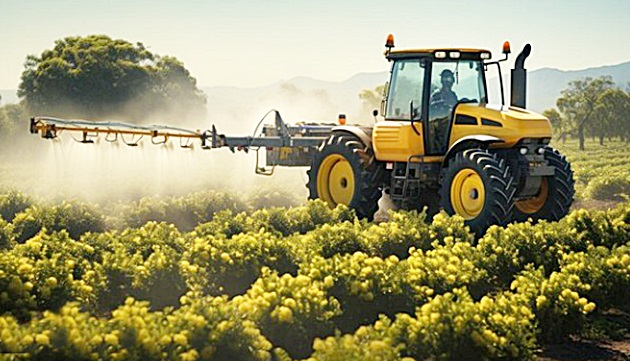
Pesticide Industry Under Pressure: Generics Rise Amid Financial Strain and Stricter Regulations
According to Euractiv, the pesticide industry is undergoing major transformation as generic pesticide producers gain ground over traditional chemical giants.
This shift is driven by several factors, including financial pressures on farmers, the expiration of patents on active substances, and increasingly strict regulations on pesticide use.
Financial Pressures and the Rise of Generics
Facing low crop prices and declining revenues, many American farmers are turning to more affordable generic pesticides and fungicides.
This trend is impacting the profits of major agrochemical companies such as Bayer, Syngenta, Corteva, and BASF. Farmers like Paul Butler and Jeff O'Connor from Illinois have opted for generic products to cut costs, even though these alternatives may come with disadvantages—such as the absence of guarantees if treatments are ineffective.
As patents on numerous active substances expire, the market is flooded with generic alternatives. Public domain chemicals now account for roughly 80% of the pesticide market share, putting significant pressure on traditional producers.
This shift is one of the key reasons why more farmers are moving toward cheaper options.
Stricter Regulations and Industry Impacts
Tougher pesticide regulations in the European Union have led to bans on substances considered harmful to human health and the environment. However, the EU continues to export some of these banned substances to non-EU countries, raising ethical and public health concerns.
A notable example often cited is the 1984 Bhopal disaster, where a toxic gas leak at a pesticide plant led to thousands of deaths.
In response to tightening rules, the pesticide industry has ramped up lobbying efforts to influence legislation, frequently warning of potential job losses and negative economic impacts if stricter measures are enacted.
These arguments have significantly influenced legislative processes, resulting in the dilution of some proposed regulations aimed at reducing pesticide use.
Legal Challenges and Antitrust Accusations
Pesticide manufacturers are also facing legal challenges. For example, the state of Arkansas has sued Syngenta and Corteva, accusing them of anti-competitive practices through loyalty programs that discourage the sale of generics and help maintain high prices.
A federal judge in North Carolina recently ruled that the same companies must face similar accusations, which could lead to significant changes in how the industry operates.
Public Health and Environmental Impact
The widespread use of pesticides poses risks to both public health and the environment. Concerns have been raised about rising cancer rates among children in certain regions, possibly linked to pesticide exposure.
Pesticides can also harm pollinators, degrade soil health, and contaminate water sources, with serious consequences for biodiversity.
Proposed Measures to Reduce Pesticide Use
To address these concerns, the European Parliament has proposed a 50% reduction in pesticide use and risk by 2030. The plan includes support for farmers transitioning to more sustainable agricultural practices and increased access to eco-friendly alternatives.
However, implementing these measures is complex and requires a careful balance between environmental protection, public health, and the economic viability of farms.
The ongoing changes in the pesticide industry—driven by the rise of generics, tighter regulations, and financial pressures—are challenging the business models of traditional chemical giants.




